Obituary: Ricardo J. Quinones
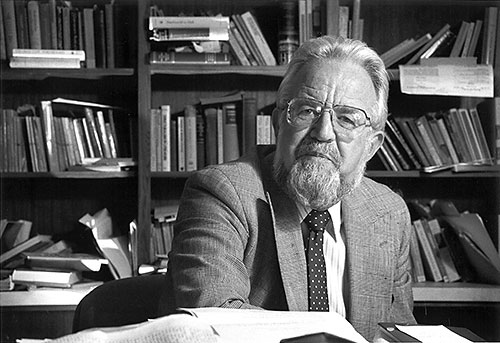
CMC literature professor, Gould Center director, scholar, author, poet
Ricardo J. Quinones, a longtime Claremont resident and retired comparative literature professor at Claremont McKenna College, has died from complications of a many-year struggle with Parkinson’s disease.
Professor Quinones was also founding director of the Gould Center for Humanistic Studies at the college, which now has a distinguished lectureship in his name. For several years, he served on the board of directors of the National Council for the Humanities, appointed in 2004 by President George W. Bush.
He died in hospice care at his home in West Los Angeles on January 25. He was 83.
Professor Quinones and his young family arrived in Claremont in an old Buick station wagon in 1963, straight out of Harvard University, where he earned his PhD under renowned literary scholar Harry Levin.
Over the years he became a fixture on the small, growing campus, a beloved teacher for generations of students, in love with his subject. He was the school’s professor of the year in 1977.
He was also at times a tempestuous figure. He protested the Vietnam War, supported the Civil Rights movement, loved Robert F. Kennedy and voted for George McGovern.
Years later, with increasing encounters with a stifling political correctness in academia, his politics veered away from the Democratic Party, believing it had left him, though his favorite presidents remained Harry Truman and John Kennedy.
He was one of the first presidents of the Association of Literary Scholars, Critics, and Writers, which formed in 1994 in opposition to the politicization of debate in the humanities and as an alternative to the Modern Language Association, the mainstream organization of literature scholars.
Through it all, he loved reading and literature and all kinds of stories, baseball and basketball, movies, especially gangster movies, and The Godfather above all. He was as delighted by Bird and Magic as he was by T.S. Eliot and King Lear. During the 1963 move to Claremont, he entertained his two young sons with the stories of Odysseus. His office was a famous chaos of books and papers piled in seemingly incoherent stacks, in a filing system only he could decipher.
He retired from CMC in 2002, after 39 years on its faculty.
In his long career, he wrote nine books of literary criticism, including three in retirement while battling Parkinson’s. He was a noted scholar and expert on the works of Shakespeare, Dante and James Joyce.
His last book, North/South: The Great European Divide, in 2016, was a discussion of Protestant and Catholic Christianity and their effects on economic development. His first book, The Renaissance Discovery of Time (1972), is considered a standard of literary studies of the period, discussing how the modern view of time as a commodity to be controlled came into being. In 1985 historian and Librarian of Congress Daniel Boorstin called it “one of the most important books of the last two decades.”
Novelist Charles Johnson used Mr. Quinones’ book, The Changes of Cain, an exposition on the Cain-Abel theme in literature—the impulses in human nature of innocence and destruction—to influence his 1998 historical novel, Dreamer, about the life of Rev. Martin Luther King, Jr.
In retirement, he also wrote five books of poetry. His poetry tended toward storytelling. He wrote a poem about the plane that went down in that Pennsylvania field on September 11, “Shanksville,” and another about his memories at age 10 of the men returning from World War II.
As the disease withered his muscles and twisted his fingers and toes, he nevertheless held poetry events, with actors reading his work, combined with a cellist or a violinist.
Ricardo Quinones grew up in Allentown, Pennsylvania, the second child of Laureano and Maria Elena Quinones: He an immigrant from Galicia, Spain and a worker in a brewery; she a worker in a sewing factory, born in America to a large family of immigrants from Calabria, Italy.
Growing up, he was an altar boy and a copy boy at the Allentown Morning Call newspaper. A friendly priest channeled him into college, something rare for kids from Allentown’s teeming neighborhoods of southern and eastern European immigrants.
He attended Northwestern University in Evanston, Illinois. Originally intending to be a journalist, he fell under the mentorship of Donald Torchiana, a Northwestern literature professor, and from there his career focus shifted to academia.
At Northwestern, he also met his first love, Lolly Brown, a student from Des Moines, Iowa. They were married in 1956. Their early days were spent in Europe, where he was on a Fulbright Scholarship, studying in Italy, Germany, and France, where he played basketball for a club in the town of Clermont-Ferrand.
He came to Claremont as the town was morphing into a place of great musical, artistic and cultural effervescence. His friends were poets and artists, then later political scientists and economists. His sons attended Oakmont Elementary, El Roble Junior High and Claremont High School, and he sent them to Berkeley, Yale and CMC.
He also encountered death too young. His mother died when he was 11, his father when he was 22. His second son, Nathanael, died at 18 in a car accident in February 1979, followed by his wife, who died of cancer that May.
After that, he raised his two youngest sons, Ben and Josh, alone. They went on to become attorneys. His oldest son, Sam, is a journalist and author.
In the late 1990s, he met Roberta Johnson, a literature professor at Kansas University specializing in Spanish women writers. They fell in love and married in 1998. One of his books of poetry is titled Roberta. She cared for him through his illness, along with his wonderful caregivers, Anthony, Marlon and Ferdie.
Up until his death, he was working on another book, this one undefined except that its focus was on the 1800s. His stack of reference books on the dining room table included Treasure Island, and biographies of Napoleon and U.S. Grant.
At his last Christmas dinner, he read to his family “For the Union Dead” by poet Robert Lowell.
Apart from his wife and sons, he is survived by daughters-in-law Sheila and Michelle; sister, Maria Elena Quinones Sarnitsky; and six grandchildren, Laurel, Sara, Nathaniel, Sofia, Cecilia and Caroline.
A burial service is scheduled for 12:30 p.m. Friday, February 1 at Todd Mortuary Chapel, 325 N. Indian Hill Blvd., Claremont. A private interment at Oak Park Cemetery, 410 Sycamore Ave., Claremont, and a reception will follow.
A mass is scheduled for 11 a.m. Monday, February 4 at St. Martin of Tours Catholic Church, 11967 Sunset Blvd., West Los Angeles.
A public celebration of his life will be held at CMC, the date for which will be announced later.



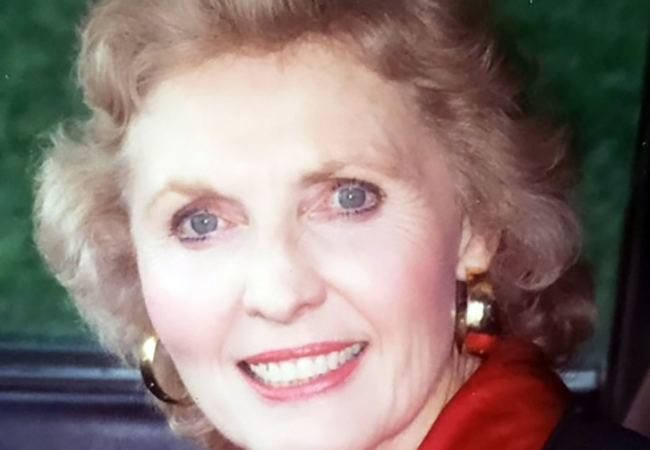
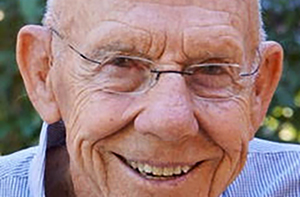
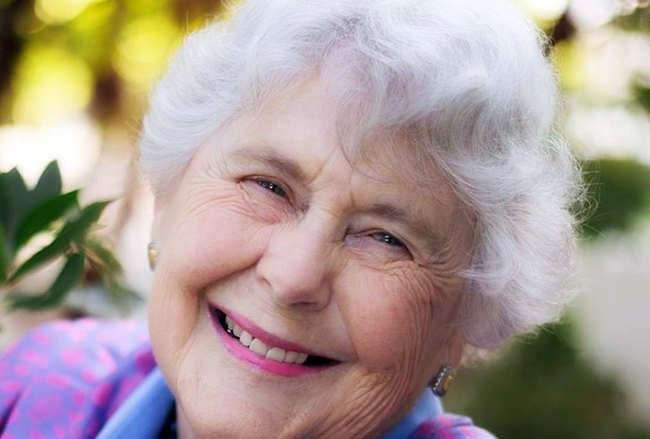
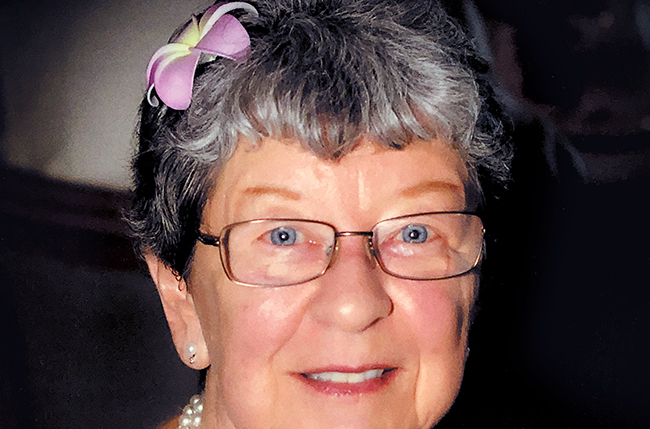
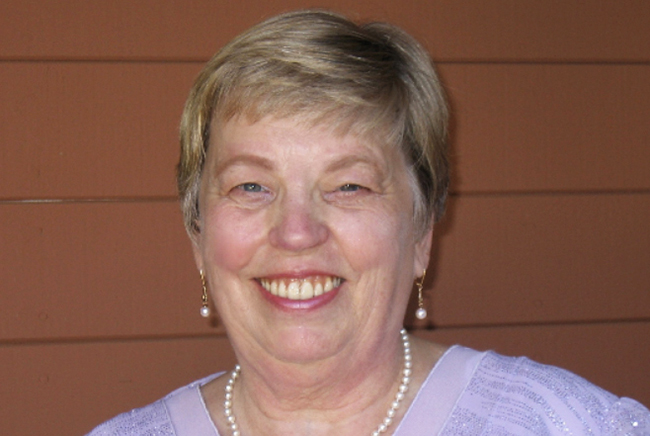
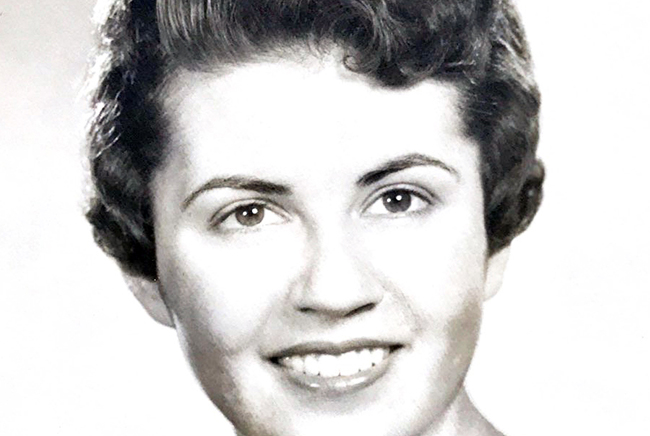

0 Comments